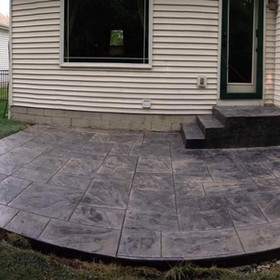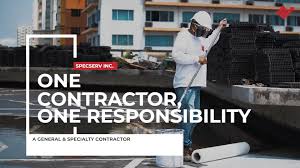
If you're thinking of installing a heat pump in your home, you need to know more about how they work. There are three types: geothermal, ducted air-source, and central heat pumps. Learn more about the different types of heat pumps and how to select the best one for you. Also learn how you can safely remove an existing heat pump. Make sure you have a plan in place before installing a heat pump.
Ducted air source heat pumps
Ducted Air Source Heat Pumps are a great choice, regardless of whether you need heat or cool during the summer. These heat pumps use a ductwork system that circulates conditioned air throughout your house. You can also install them in individual rooms. They can be installed in any room or throughout the house to provide temperature control. Here are some of these benefits of ducted-air source heat pumps.

These HVAC systems are very energy efficient. They help to reduce greenhouse gas emissions. You can get them in both ductless or ducted configurations. You can save hundreds of dollars per year on your energy bills by using ductless air source heat pumps. They also make it possible to avoid having to purchase a central air conditioning unit. They reduce allergens and provide more comfortable cooling in summer. Depending on the size of your home, you can choose between ductless and ducted models.
Geothermal heat-pump
You should be aware that geothermal heat pumps distribute heat throughout your house by using the earth's heat. This is done by circulating a fluid through closed loops. The fluid is typically made of plastic tubing. It is then buried or submerged into a pond or lake. The pump has a heat exchanger that transfers the heat from the refrigerant in the heat pump to the antifreeze solution in the closed loop. These heat pumps come in two types: horizontal and vertical. There is also a stand-alone model that can provide domestic hotwater.
It is essential to determine which type of geothermal installation is best for your needs before you install a geothermal heating system in your house. There are two types: open loop and closed loop. The first type is easier to install, and it uses the ground’s natural heat for cooling your home. The latter is more common, but may only be used in areas with groundwater. Each type of installation will require different installation methods. If in doubt about which type system is best suited for your needs, you should consult a professional.
Heat pumps central
You need to carefully consider the pros and con's of central heat-pump installation before you make a decision. It is important to evaluate the energy efficiency of your heat pump before you purchase one. The more efficient your heat pumps are, the longer they can keep your home cool. A qualified HVAC professional will determine the proper size heat pump for you and your duct system. After you have determined how much energy it consumes, you can calculate how much money you will save.

There are many central heat pumps available on the marketplace. There are budget-priced options and premium ones. Budget-priced models will last between 12 and 16 years. Standard-priced units will last for 15 to 18 year. The most expensive heat pumps, but they are of excellent quality and last for 17 to 22 years. The brand you choose will depend on your preferences and budget.
FAQ
What is the cost of applying for building permission?
It can vary depending on the complexity of your plan and where it is located. It also depends on whether your application is for permission to construct or extend an existing house. This can take several weeks so don't be surprised if you have to wait for everything to be completed.
Do I have to sign anything prior to starting work?
Yes - your SCA requires both parties to sign it. This means that neither party may change their mind after the agreement is signed.
What happens if one of the parties doesn't accept their side?
The law allows you to sue the other party for damages if you don't fulfill your agreement. Damages include the amount owed plus interest, court costs, and legal fees.
Is there a limit to the amount of money I can spend on the project?
No. No. You may be able negotiate a lower price from the contractor.
How can I get a service contract agreement?
You can get a standard SCA form at your local government. Alternatively, you could use our online quote generator to find out more information about your requirements and then send us your details so we can contact you with further information.
Can I cancel my contract at anytime?
Yes, but you must do it within 14 days after signing the contract. Your contract can be ended by giving notice in writing up to seven days before the deadline. In some cases, however, you might still owe contractor money for work done.
What is a service contract agreement?
An agreement between two parties for the provision of services is called a Service Contract Agreement (SCA). The SCA specifies the services to be provided, their cost, time and effort required, who will pay for them, and when they should start. It also stipulates what happens if either party breaches its obligations under the agreement.
Statistics
- (1) Ascertain the extent to that offers are based on the payment of overtime and shift premiums; and (2) Negotiate contract prices or estimated costs without these premiums or obtain the requirement from other sources. (acquisition.gov)
- (1) Except as provided in paragraphs (a)(4) and (a)(8) of this section, if the estimated amount of the contract or subcontract is $10 million or more, the contracting officer shall request clearance from the appropriate OFCCP regional office before- (acquisition.gov)
- Don't take their anger personally, they are mad about the situation 99% of the time. (activatemylicense.com)
- (d) Contractor disputes related to compliance with its obligation shall be handled according to the rules, regulations, and relevant orders of the Secretary of Labor (see 41 CFR60-1.1). (acquisition.gov)
- While we offer all our high-quality services at competitive prices, we know that many who need our services are on fixed incomes, so we offer a 10 percent discount for seniors and military members. (homeservicecontractorsinc.com)
External Links
How To
What should a service arrangement include?
A Service Agreement (SA) is essential to any business relationship. It sets out what you expect from one another and how you intend to achieve these expectations. The SA also describes when and how you expect the other side to meet its contractual obligations.
These are the key components of a successful SA:
-
Both parties agree on the scope of work and the services they require.
-
Payment terms details, including start date and expiration dates for goods/services.
-
The project price must be agreed.
-
Any additional costs like VAT etc.
-
If there are any other issues that need to be addressed.
-
Who will be held responsible for any problems that may arise on the job?
-
How disputes are resolved
-
What happens if a party breaches the contract.
-
What happens when there is a disagreement?
-
When does the contract go into effect?
-
What happens if one of the parties fails to perform.
-
What length of time will you be required to pay invoices
-
Who pays for things such as travel expenses?
-
Where the money comes.
-
What happens if a client changes mind about the project?
-
What happens if the supplier doesn't turn up.
-
Who has the right to enter the site during construction?
-
What happens if the customer cancels?
-
What happens when the product is defective?
-
What happens if the manufacturer refuses parts?
-
What happens if the equipment breaks down.
-
What happens if the project takes more time than anticipated?
-
What happens if work isn’t completed in the timeframe agreed upon?
-
What happens if the project is not up to standard?
-
What happens if the cost exceeds?
-
What happens if materials are not delivered on time?
-
What happens if your material arrives damaged?
-
What happens to the products if they are not up-to-standard?
-
What happens if the job gets cancelled before it is completed?
-
What happens if the company goes bankrupt?